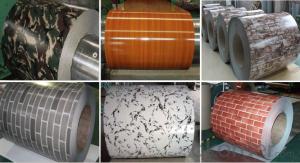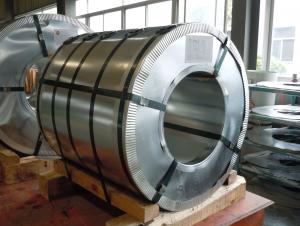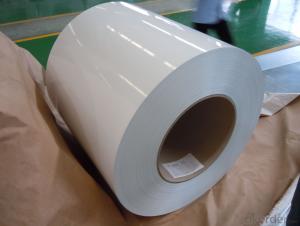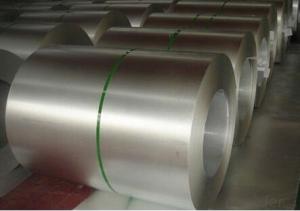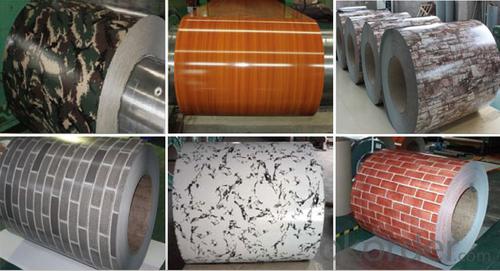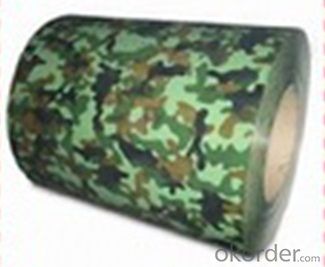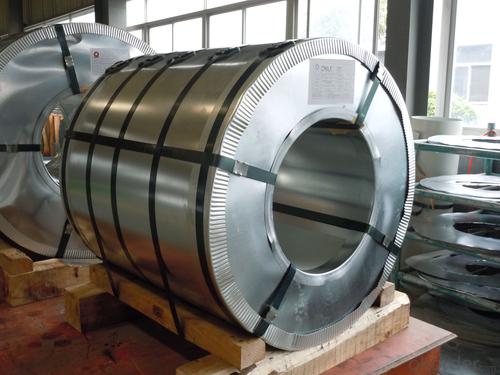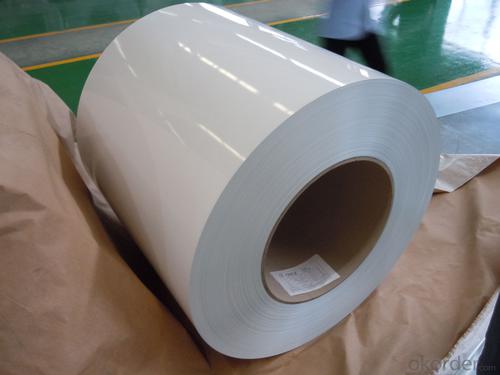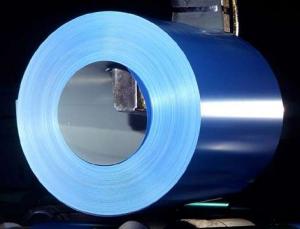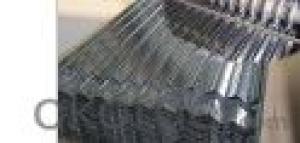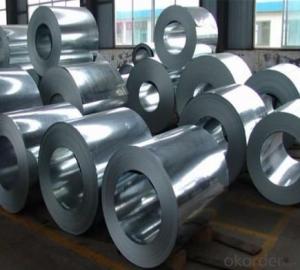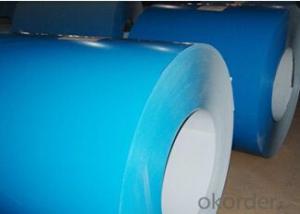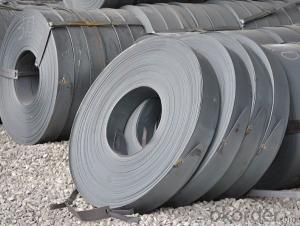Hot Dipped Galvanized Steel Coils(GI / GL / PPGI / PPGL)
- Loading Port:
- Shanghai
- Payment Terms:
- TT OR LC
- Min Order Qty:
- 50 m.t.
- Supply Capability:
- 100000 m.t./month
OKorder Service Pledge
OKorder Financial Service
You Might Also Like
Packaging & Delivery
| Packaging Detail: | mill's standard packing,sea worthy packing,steel pallets |
| Delivery Detail: | within 15-30 days after received the deposit or the LC at sight |
Specifications
hot dipped galvanized steel coils
1.FOB:650-1000SUSD/TON
2.size:0.13-0.6mm*750-1250mm*C
3.zinc coating:50-220gsm
4.chromate
hot dipped galvanized steel coils
NAME
| PPGI |
GALVANIZED
|
GALVALUME/ALUZINC
|
CERTIFICATE | ISO9001:2008 | ||
GRADE
| CGCC CGCH CGCD1-CGCD3 CGC340-CGC570 GRADE
| SS GRADE33-80 SGCC SGCH SGCD1-SGCD3 SGC340-SGC570 SGCC DX51D | GRADE33-80 SGLCC SGLCD SGLCDD SGLC400-SGLC570 SZACC SZACH SZAC340R |
MODEL NO | 0.16MM-0.8MM*1250MM OR UNDER | (0.127-1.2*1250MM OR UNDER | 0.12MM-2MM*1250MM OR UNDER |
TYPE
|
Steel coil Steel sheets/plates Corrugated steel sheets/plates
| Steel coil Steel sheets/plates Corrugated steel sheets/plates |
Steel coil Steel sheets/plates Corrugated steel sheets/plates
|
TECHNIQUE |
Ccold rolled -galvalume /galvanized -PPGI/PPGL | Cold rolled - galvanized |
Cold rolled -galvalume /Aluzinc
|
SURFACE TREATMENT | Mini/regular/big/zero spangle, Chromate treatment /chromate-free treatment /untreated unoile/oiled, TENSION LEVELLERT SKIN PASS anti-fingerprint/un-anti-fingerprint, Coating,color
| Mini/regular/big/zero spangle, Chromate treatment /chromate-free treatment /untreated unoile/oiled, TENSION LEVELLERT SKIN PASS anti-fingerprint/un-anti-fingerprint, Coating
| |
APPLICATION | Structural use ,roofing, commercial use, household appliance, industry, family
| ||
SPECIAL APPLICATION | Wear resistant steel, high- strength - steel plate | ||
- Q: so what is stronger tempered steel Blade or carbon steel Blade? a Machete made of those i said above what will last longer,what can cut better,which will will shatter first.
- 1. all steel blades are tempered, whether they are high carbon blades or low carbon blades. 2. It depends on what kind of steel they are made from. So im going to answer this question, using the following qualifications. 440A stainless steel 440C stainless steel - high carbon. The higher the carbon level, the more brittle a blade becomes. But the higher the carbon level, will increase a steel’s wear resistance , meaning it will have a better edge retention 2. They both will work well. Pros's / Con's The 440C blades will need less sharpening, but are harder to sharpen The 4401 blades will need to be sharpened more, but are far easier to resharpen. So it basically comes down to where you will be using them and how you will be using them. If your gonna be out in the middle of the jungle and stopping for the night, then the high carbon blade would probably be better, you use it all day, resharpen it at night. If your gonna be cutting brush, tobbaco, etc on your land, then the 440A would be better, because you can take a couple of min's to resharpen it often
- Q: Just wondering how good are forge steel screw drivers, tool boxes(organisers) and pliers are, as screw fix are having a january sale, and looking to add to my tool collection. Thanks in advance
- Forge Steel
- Q: The guy at this one pawn shop told me that stainless steel is better because it is just as strong and will not rust. The guy at the other pawn shop said that you need high carbon steel for a good sword because stainless steel breaks easily and that damascis is the best kind of steel for swords.
- Modern Sword Steels: Stainless - Used in decorative swords and knives. Stainless steel blades longer than twelve inches are too brittle for full contact use. 1045 Carbon - Strong, but soft compared to higher carbon steels. Reasonably cheap and acceptable for full contact use. 1060 Carbon - Harder than 1045, but not brittle. Holds a keen edge and is very durable. Somewhat expensive, but great for full contact use. 1095 Carbon - Sacrifices the durability of lower carbon steels for better edge retention and increased hardness. Somewhat expensive, but tough enough for full contact use. 5160 Spring - Extremely tough and durable. Great for full contact use when properly heat treated. 9260 Spring - Amazingly resilient and durable, but not unbreakable. Excellent for full contact use. T10 Tool - Exceptionally hard and tougher than other steels with similar carbon content. Keeps a good edge without sacrificing durability. Can be expensive, but is still great for full contact use. L6 Bainite - Can be very expensive, but is the toughest steel on the market when properly heat treat. Excellent for full contact use, but requires additional maintenance to prevent rust and corrosion. About Damascus Steel: Historical Damascus blades were made from wootz, an Indian steel with unique properties. The technique for making this type of steel has been lost, but there have been many attempts to recreate it. The patterns found on Damascus steel blades are a direct result of the sword-making process and are not entirely dependent on the type of steel used. Damascus swords were the finest blades of their time.
- Q: What is steel made of? What are the elements other than iron?
- iron (Fe) and carbon (C). Carbon is in small proportion, from 0.1% to 1.7% or so. If you go over 1.7% carbon by weight you get cast iron, which is much less hard than steel.
- Q: What are the different types of steel finishes available for coils?
- There are several types of steel finishes available for coils, including hot rolled, cold rolled, galvanized, and coated finishes.
- Q: What are the different types of coatings applied to steel coils?
- Steel coils can be coated with a variety of coatings, each serving a specific purpose and offering unique advantages. 1. Galvanized Coating: Among the most frequently used coatings for steel coils is the galvanized coating, which entails the application of a layer of zinc to the steel surface. Galvanized coatings offer exceptional corrosion resistance, making them ideal for outdoor applications where the steel may come into contact with moisture or harsh environmental conditions. 2. Galvalume Coating: Similar to galvanized coating, galvalume coating also involves the application of a zinc layer to the steel surface. However, it incorporates a small amount of aluminum as well. This addition enhances the coating's corrosion resistance and improves heat reflectivity. Galvalume coatings are commonly employed in roofing and cladding applications. 3. Pre-painted Coating: Pre-painted coatings encompass the application of a layer of paint or primer to the steel surface. This type of coating allows for customization in terms of color and finish. Pre-painted coatings not only enhance the steel's aesthetic appeal but also provide added protection against corrosion and weathering. 4. Organic Coating: Organic coatings are typically applied as a topcoat over galvanized or galvalume coatings. They are composed of various resins, such as polyester, epoxy, or polyurethane, which offer additional protection against corrosion, abrasion, and chemicals. Organic coatings are frequently utilized in industries that prioritize both durability and aesthetics, such as the automotive sector. 5. Metallic Coating: Metallic coatings, such as aluminum or zinc, are applied to steel coils using the hot-dip coating process. These coatings deliver exceptional corrosion resistance and are commonly used in applications where the steel is exposed to high temperatures or corrosive environments. 6. Chromate Conversion Coating: Chromate conversion coatings are primarily applied to steel coils for their corrosion resistance properties. They are frequently employed in electrical applications to safeguard against galvanic corrosion and enhance conductivity. Ultimately, the choice of coating for steel coils is contingent upon specific application requirements, including the desired level of corrosion resistance, aesthetic considerations, and environmental factors.
- Q: Steel resist tension. Then why we provide steel in compression zone ?
- There are several reasons to add compression steel. Keep in mind, supported steel (meaning it can't buckle) resists compression as well. Compression steel helps reduce long term deflections. Concrete creeps under sustained loads. Steel lessens the compression, meaning less sustained compressive stress to cause creep deflection. It makes members more ductile. Since the steel takes some of the compressive stress, the compression block depth is reduced, increasing the strain in the tension steel at failure, resulting in more ductile behavior (the moment at first yield remains largely the same with compression steel added, but the increase in capacity after yield is significant). Compression steel insures that the tension steel yields before the concrete crushes, meaning it helps change the failure mode to tension controlled. It makes beams easier to construct. With bars in the top and bottom, you have longitudinal reinforcement in all 4 corners of the shear stirrups to keep them in place when pouring the concrete. Also, for continuous members, its often easier to run your negative moment steel the full length of the beam rather than trying to cut it off in the positive moment regions. Serviceability concerns. You're going to end up putting steel in that region anyway to for temperature and shrinkage.
- Q: What are the main factors that affect the surface quality of steel coils?
- The main factors that affect the surface quality of steel coils include the quality of the raw materials used, the manufacturing process, the cleanliness of the production environment, the equipment and tools used, and the skill and expertise of the operators.
- Q: How are steel coils used in the manufacturing of drivetrains?
- Steel coils are used in the manufacturing of drivetrains as they provide the necessary strength and durability required for various components such as gears, shafts, and bearings. These coils are often shaped and machined to create specific drivetrain parts that can withstand the high pressures and forces involved in transferring power from the engine to the wheels.
- Q: I'm quite confused...i watched all of steel angel kurumi (the 28 episodes) and then continued to steel angel kurumi zero. it was an entire different story line with only the steel angels being the same. the world is different the guys are different, and there is a new character. Even the humor is gone. its like a whole different series. So what gives, what is the relationship between them?
- Steel Angel Zero is an OVA (Original Video Animation), a very short animation that went straight to DVD. It probably was written because Kurumi was so popular, and the producer wanted to check the waters for whether they should make a second season. It's pretty hard to keep track of what anime is which, especially in the more popular series. If you think Zero is worth zero, try Steel Angel Kurumi 2 (anime, 12 episodes), and Steel Angel Kurumi Encore (OVA, 4 episodes) as well.
Send your message to us
Hot Dipped Galvanized Steel Coils(GI / GL / PPGI / PPGL)
- Loading Port:
- Shanghai
- Payment Terms:
- TT OR LC
- Min Order Qty:
- 50 m.t.
- Supply Capability:
- 100000 m.t./month
OKorder Service Pledge
OKorder Financial Service
Similar products
Hot products
Hot Searches
Related keywords
